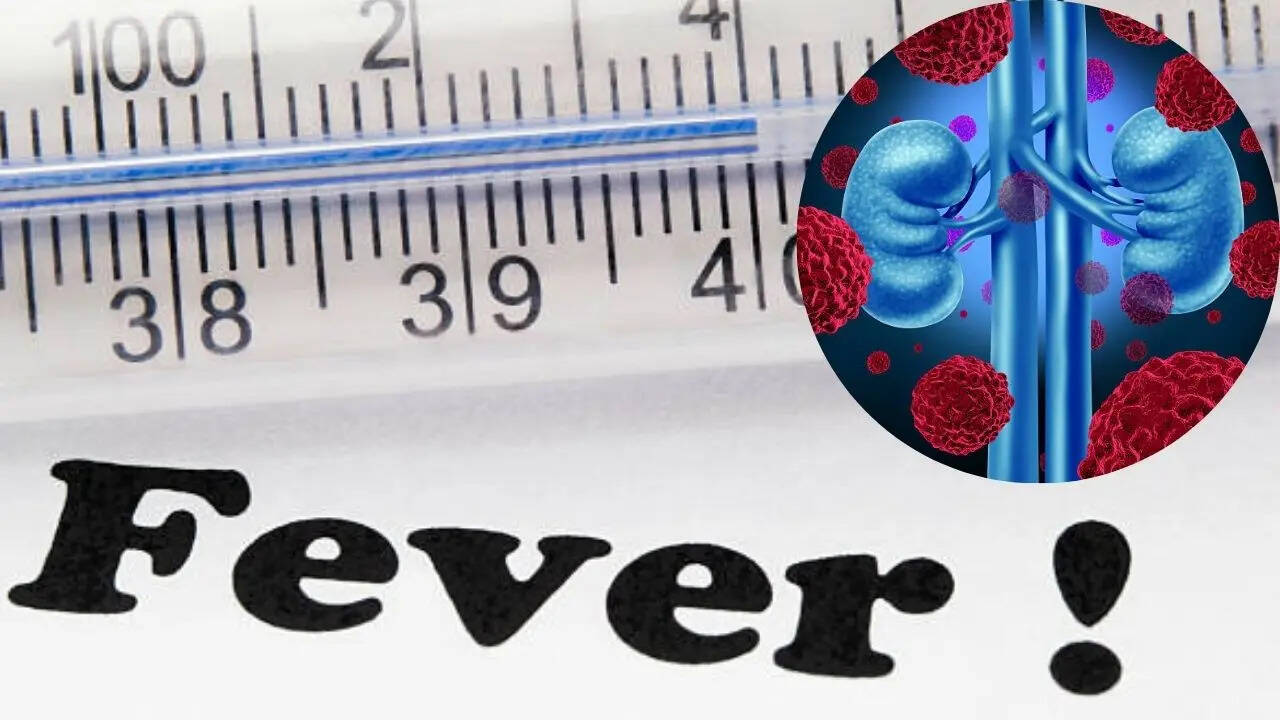Health
Experts Warn: Unexplained Fever May Signal Kidney Cancer

A persistent fever without an identifiable cause may indicate the presence of kidney cancer, according to medical experts. This condition, known as Pyrexia of Unknown Origin (PUO), can signal underlying health issues, including renal cell carcinoma, which often remains undetected until advanced stages.
Dr. Mohammed Mithi, a Surgical Oncologist at Saifee Hospital, emphasized that while fevers are typically associated with infections, unexplained recurring fevers could be linked to kidney cancer. He noted that this type of cancer is often discovered incidentally during imaging tests. “In certain cases, it arises with what is termed a paraneoplastic syndrome, which includes symptoms not directly caused by the tumor but by chemicals released by the tumor or by the immune system,” he explained.
Kidney cancer is frequently asymptomatic in its early stages. According to Dr. Iti Parikh, a Consultant Medical Oncologist at Bhailal Amin General Hospital, the classic symptoms—flank pain, hematuria (blood in urine), and abdominal masses—only appear in approximately 9 to 10 percent of cases. “When symptoms do manifest, they typically indicate an advanced local stage of the disease,” Dr. Parikh added.
Fever occurs in about 20 percent of kidney cancer patients, often accompanied by systemic symptoms such as weight loss, night sweats, and fatigue. The exact cause of fever in these patients is frequently unknown. Dr. Parikh noted, “When fever appears, it can indicate more extensive or systemic disease.”
Dr. Mithi explained that persistent fever in kidney cancer cases is often due to the release of inflammatory cytokines like interleukin-6, which disrupts the body’s temperature regulation. This can lead to misdiagnosis, with patients receiving repeated antibiotic treatments instead of a cancer diagnosis, delaying timely intervention.
Other symptoms associated with kidney cancer include fatigue, weight loss, anemia, hypercalcemia, and in rare cases, liver dysfunction or Stauffer syndrome. “If fever is persistent without any evident source—especially if accompanied by systemic manifestations—clinicians must consider cancer in their differential diagnosis,” Dr. Mithi stated.
To diagnose kidney cancer, imaging studies such as ultrasound or CT scans are often employed. Kidney cancer, characterized by abnormal cell growth in the kidney tissue, can metastasize to other organs if not detected early.
This type of cancer predominantly affects individuals aged between 65 and 74 years, with men being twice as likely to develop it compared to women. While kidney cancer is rare in children, its early stages often do not produce noticeable symptoms, leading to late diagnoses as the tumor grows.
Some common symptoms of kidney cancer include:
– Blood in urine
– A lump or mass in the kidney area
– Flank pain
– Chronic fatigue
– General malaise
– Loss of appetite
– Persistent low-grade fever
– Bone pain
– High blood pressure
– Anemia
– Elevated calcium levels
Recognizing these signs can be critical for early detection and treatment. Patients experiencing unexplained fevers or other concerning symptoms should consult with healthcare professionals to rule out serious conditions like kidney cancer.
-

 World5 months ago
World5 months agoSBI Announces QIP Floor Price at ₹811.05 Per Share
-

 Lifestyle5 months ago
Lifestyle5 months agoCept Unveils ₹3.1 Crore Urban Mobility Plan for Sustainable Growth
-

 Science4 months ago
Science4 months agoNew Blood Group Discovered in South Indian Woman at Rotary Centre
-

 World5 months ago
World5 months agoTorrential Rains Cause Flash Flooding in New York and New Jersey
-

 Top Stories5 months ago
Top Stories5 months agoKonkani Cultural Organisation to Host Pearl Jubilee in Abu Dhabi
-

 Sports4 months ago
Sports4 months agoBroad Advocates for Bowling Change Ahead of Final Test Against India
-

 Science5 months ago
Science5 months agoNothing Headphone 1 Review: A Bold Contender in Audio Design
-

 Top Stories5 months ago
Top Stories5 months agoAir India Crash Investigation Highlights Boeing Fuel Switch Concerns
-

 Business5 months ago
Business5 months agoIndian Stock Market Rebounds: Sensex and Nifty Rise After Four-Day Decline
-

 Sports4 months ago
Sports4 months agoCristian Totti Retires at 19: Pressure of Fame Takes Toll
-

 Politics5 months ago
Politics5 months agoAbandoned Doberman Finds New Home After Journey to Prague
-

 Top Stories5 months ago
Top Stories5 months agoPatna Bank Manager Abhishek Varun Found Dead in Well









